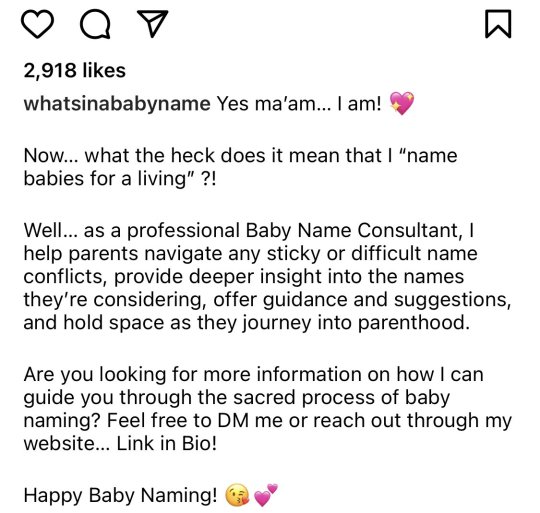#freelance web development uk
Explore tagged Tumblr posts
Text
Find Top Website Developers Near You in 2024
I. Introduction
In today’s digital age, having a website is essential for any business or organization. A website serves as a virtual storefront, providing customers with information about your products or services and allowing them to make purchases or inquiries online. However, creating a website is not a simple task. It requires the expertise of website developers who can design, develop, and maintain a website that meets your business needs and goals.
If you’re looking to create a website for your business or organization, it’s important to find the right website developers who can deliver a high-quality website that meets your expectations. In this article, we’ll discuss the importance of website developers, the qualities of top website developers, how to find website developers near you, the benefits of hiring local website developers, questions to ask before hiring website developers, tips for working with website developers, and the cost of hiring website developers.
We’ll also provide resources for finding website developers near you. By the end of this article, you’ll have a better understanding of how to find top website developers near you and how to work with them to create a successful website for your business or organization.

II. Importance of Website Developers
Website developers play a crucial role in the success of any online business or organization. They are responsible for creating and maintaining websites that are visually appealing, user-friendly, and functional. Without website developers, businesses would struggle to establish an online presence and attract customers.
Website developers are skilled professionals who possess a range of technical and creative abilities. They must be proficient in programming languages such as HTML, CSS, and JavaScript, as well as have a strong understanding of web design principles. Additionally, they must be able to work collaboratively with clients and other team members to ensure that the website meets the needs and goals of the business.
In today’s digital age, the demand for website developers is higher than ever before. As more businesses shift their operations online, the need for skilled website developers continues to grow. This has led to an increase in the number of website developers available for hire, making it easier for businesses to find top talent for their projects.
However, not all website developers are created equal. To ensure that you hire the best website developer for your project, it is important to look for certain qualities. Top website developers possess excellent problem-solving skills, attention to detail, and the ability to communicate effectively with clients. They are also able to stay up-to-date with the latest freelance web development uk.

III. Qualities of Top Website Developers
Website development is a complex process that requires a high level of technical expertise and creativity. Therefore, it is essential to hire top website developers who possess the necessary skills and qualities to create a successful website. Here are some of the qualities that top website developers possess:
1. Technical Skills: Top website developers have a strong understanding of programming languages such as HTML, CSS, JavaScript, and PHP. They are also proficient in using website development tools such as WordPress, Drupal, and Joomla.
2. Creativity: Top website developers have a creative mindset that allows them to design visually appealing websites that are user-friendly and engaging. They have an eye for detail and can create unique designs that stand out from the competition.
3. Communication Skills: Top website developers have excellent communication skills that enable them to understand the client’s requirements and translate them into a functional website. They can also explain technical concepts to non-technical stakeholders in a clear and concise manner.
4. Problem-Solving Skills: Top website developers have strong problem-solving skills that enable them to identify and resolve issues quickly. They can also anticipate potential problems and develop solutions to prevent them from occurring.
5. Time Management: Top website developers are skilled at managing their time effectively to meet project deadlines. They can prioritize tasks and work efficiently to ensure that the project is completed on time and within budget.
6. Attention to Detail: Top website developers have a keen eye for detail and can spot errors or inconsistencies in the website design. They can also test the website thoroughly to ensure that it is functioning correctly.
In conclusion, hiring top website developers is crucial for the success of your website. They possess the necessary technical skills, creativity, communication skills, problem-solving skills, time management, and attention to detail to create a successful website.
Visit us for more information :- freelance web designer uk
IV. How to Find Website Developers Near You
Finding website developers near you can be a daunting task, especially if you are not familiar with the industry. However, there are several ways to find top website developers in your area. Here are some tips to help you get started:
1. Ask for referrals: One of the best ways to find website developers near you is to ask for referrals from friends, family, or colleagues who have worked with website developers in the past. They can provide you with valuable insights into the developer’s work ethic, communication skills, and overall quality of work.
2. Search online: Another way to find website developers near you is to search online. You can use search engines like Google or Bing to find local website developers. You can also use online directories like Yelp or Angie’s List to find website developers in your area.
3. Attend networking events: Attending networking events in your industry can also help you find website developers near you. These events provide an opportunity to meet and connect with other professionals in your field, including website developers.
4. Check social media: Social media platforms like LinkedIn, Twitter, and Facebook can also be a great resource for finding website developers near you. You can search for developers in your area and connect with them directly.
5. Use freelance websites: Freelance websites like Upwork, Freelancer, and Firmxxperts can also help you find website developers near you. These websites allow you to post your project and receive bids from developers in your area.
By using these tips, you can find top website developers near you and ensure that your project is in good hands.
V. Benefits of Hiring Local Website Developers
When it comes to hiring website developers, there are many benefits to choosing someone local. Here are some of the top advantages:
1. Better Communication: When you work with a local website developer, you can meet with them in person to discuss your project. This can lead to better communication and a clearer understanding of your needs.
2. Faster Turnaround Time: Local website developers can often work more quickly than those who are located far away. This is because they are in the same time zone and can work on your project during regular business hours.
3. Familiarity with Local Market: Local website developers are often more familiar with the local market and can create a website that is tailored to your specific audience.
4. Support Local Businesses: By hiring a local website developer, you are supporting a local business and helping to boost the local economy.
5. Easier to Build a Relationship: When you work with a local website developer, it is easier to build a relationship with them. This can lead to a more collaborative and successful project.
Overall, there are many benefits to hiring a local website developer. They can provide better communication, faster turnaround times, and a better understanding of the local market. Plus, you’ll be supporting a local business and building a relationship with someone in your community.
VI. Questions to Ask Before Hiring Website Developers
Before hiring website developers, it is important to ask the right questions to ensure that you are hiring the right person for the job. Here are some questions to ask before hiring website developers:
1. What is your experience in website development? It is important to know the experience of the website developer you are hiring. Ask for their portfolio and check their previous work to see if they have experience in the type of website you want to develop.
2. What is your process for website development? Ask the website developer about their process for website development. This will give you an idea of how they work and if their process aligns with your expectations.
3. What is your approach to website design? Website design is an important aspect of website development. Ask the website developer about their approach to website design and if they have experience in creating visually appealing and user-friendly websites.
4. What is your approach to website optimization? Website optimization is important for improving website
performance and user experience. Ask the website developer about their approach to website optimization and if they have experience in optimizing websites for speed and search engine optimization.
5. What is your availability and communication process? It is important to know the availability of the website developer and their communication process. Ask about their availability for meetings and updates and how they will communicate with you throughout the website development process.
Asking these questions will help you find the right website developer for your project and ensure that you have a successful website development experience.
VII. Tips for Working with Website Developers
When it comes to hiring website developers, it’s important to ask the right questions to ensure that you’re working with the right team for your project. Here are some key questions to ask before hiring website developers:
1. What is your experience with similar projects? It’s important to work with developers who have experience in your industry or with similar projects to ensure that they understand your needs and can deliver the results you’re looking for.
2. What is your development process? Understanding the development process can help you ensure that the developers you’re working with are organized, efficient, and able to deliver on time.
3. What is your communication process? Communication is key when working with website developers, so it’s important to understand how they will keep you updated on progress, address any issues that arise, and ensure that you’re satisfied with the final product.
4. What is your pricing structure? Understanding the cost of working with website developers is important to ensure that you’re getting a fair price for the services you need. Be sure to ask about any additional fees or charges that may be incurred during the development process.
5. Can you provide references or examples of previous work? Seeing examples of previous work or speaking with references can help you get a better sense of the quality of work that the developers are capable of delivering.
By asking these questions, you can ensure that you’re working with website developers who are experienced, organized, and able to deliver the results you’re looking for. Additionally, it’s important to establish clear communication and expectations from the outset to ensure that the development process runs smoothly and that you’re satisfied with the final product.
VIII. Cost of Hiring Website Developers
The cost of hiring website developers can vary depending on several factors such as their experience, location, and the complexity of the project. Generally, website developers charge either an hourly rate or a fixed project fee.
Hourly rates for website developers can range from $50 to $200 per hour, depending on their level of expertise and location. For instance, website developers in the United States and Europe tend to charge higher hourly rates compared to those in Asia and Africa.
On the other hand, fixed project fees are usually based on the scope of the project and can range from a few hundred dollars to tens of thousands of dollars. This pricing model is often used for larger projects that require more time and resources.
It’s important to note that while hiring a website developer with a lower hourly rate may seem like a cost-effective option, it may end up costing more in the long run if the developer takes longer to complete the project or produces subpar work.
To ensure that you get the best value for your money, it’s important to discuss the project scope and budget with the website developer before hiring them. This will help you determine if their pricing aligns with your budget and if they can deliver the quality of work you expect.
Additionally, it’s important to factor in any additional costs such as hosting, domain registration, and ongoing maintenance when budgeting for your website development project.
Overall, the cost of hiring website developers can vary greatly, but it’s important to prioritize quality and value over cost when making your hiring decision.
IX. Conclusion
Website developers play a crucial role in the success of any online business. They are responsible for creating and maintaining a website that is user-friendly, visually appealing, and functional. Finding the right website developer can be a daunting task, but with the right approach, it can be a rewarding experience.
When looking for website developers near you, it is important to consider their qualifications, experience, and portfolio. You should also ask for references and check their online reviews to ensure that they have a good reputation in the industry. Hiring local website developers can offer several benefits, including better communication, faster turnaround times, and a better understanding of your target audience.
Before hiring website developers, it is important to ask them the right questions to ensure that they are a good fit for your project. You should also establish clear communication channels and set realistic expectations to avoid any misunderstandings or delays.
Working with website developers can be a collaborative process, and it is important to provide them with clear feedback and constructive criticism. You should also be open to their suggestions and ideas, as they have the expertise and experience to create a website that meets your business needs.
The cost of hiring website developers can vary depending on their experience, location, and the scope of your project. It is important to establish a budget upfront and get a detailed quote before starting any work.
X. Resources for Finding Website Developers Near You”
When it comes to finding website developers near you, there are several resources available that can help you locate top talent for your next project. Here are some of the best resources to consider:
1. Online Job Boards: Websites like Indeed, Glassdoor, and LinkedIn are great places to start your search for website developers. These job boards allow you to post job listings and search for candidates based on their skills, experience, and location.
2. Freelance Platforms: Freelance platforms like Upwork, Freelancer, and Firmxxperts are also great resources for finding website developers. These platforms allow you to post job listings and connect with freelancers who have the skills and experience you need.
3. Local Business Directories: Local business directories like Yelp and Yellow Pages can also be helpful in finding website developers near you. These directories allow you to search for businesses and service providers in your area, including website developers.
4. Referrals: Referrals from friends, family, and colleagues can also be a great way to find website developers near you. Ask around and see if anyone you know has worked with a website developer they would recommend.
5. Industry Associations: Industry associations like the International Association of Web Designers and Developers (IAWMD) and the World Wide Web Consortium (W3C) can also be helpful in finding website developers near you. These associations often have directories of members that you can search through.
By using these resources, you can find top website developers near you who have the skills and experience you need to complete your project successfully. Just be sure to do your research, ask the right questions, and work closely with your chosen developer to ensure that your project is a success.”
1 note
·
View note
Text
Find Top Programmers for Hire in the UK: How to Hire the Right Coder for Your Project
Need to build a website, develop an app, or streamline your business with custom software? There are plenty of programmers for hire in the UK who can help turn your ideas into functional, high-quality digital products.
Whether you're looking for a programmer for hire on a freelance basis or a dedicated team member, the options are endless. From startups to established companies, the need to hire a programmer with the right skills is more important than ever.
You can now hire programmers across multiple platforms, giving you access to top talent from anywhere. Many businesses prefer to hire a programmer online for convenience, flexibility, and access to global expertise. Whether you need backend specialists, app developers, or a web programmer for hire in the UK, there’s a perfect match out there for every project.
If you're unsure where to start, coder hire services can connect you with pre-vetted professionals. The key is to clearly define your goals, timeline, and tech stack. Once that’s done, you’re ready to hire programmer talent that delivers.
So whether you're planning a new build or upgrading existing software, now is the time to hire for programmer roles that fit your vision and budget.
#programmers for hire UK#hire a programmer#web programmer UK#coder hire#programmer for hire#hire programmer online#hire programmers#hire a coder UK#freelance programmers UK#software developers for hire#tech talent UK#web development UK#hire coders online#UK coding professionals#hire for programmer
0 notes
Text
A link-clump demands a linkdump

Cometh the weekend, cometh the linkdump. My daily-ish newsletter includes a section called "Hey look at this," with three short links per day, but sometimes those links get backed up and I need to clean house. Here's the eight previous installments:
https://pluralistic.net/tag/linkdump/
The country code top level domain (ccTLD) for the Caribbean island nation of Anguilla is .ai, and that's turned into millions of dollars worth of royalties as "entrepreneurs" scramble to sprinkle some buzzword-compliant AI stuff on their businesses in the most superficial way possible:
https://arstechnica.com/information-technology/2023/08/ai-fever-turns-anguillas-ai-domain-into-a-digital-gold-mine/
All told, .ai domain royalties will account for about ten percent of the country's GDP.
It's actually kind of nice to see Anguilla finding some internet money at long last. Back in the 1990s, when I was a freelance web developer, I got hired to work on the investor website for a publicly traded internet casino based in Anguilla that was a scammy disaster in every conceivable way. The company had been conceived of by people who inherited a modestly successful chain of print-shops and decided to diversify by buying a dormant penny mining stock and relaunching it as an online casino.
But of course, online casinos were illegal nearly everywhere. Not in Anguilla – or at least, that's what the founders told us – which is why they located their servers there, despite the lack of broadband or, indeed, reliable electricity at their data-center. At a certain point, the whole thing started to whiff of a stock swindle, a pump-and-dump where they'd sell off shares in that ex-mining stock to people who knew even less about the internet than they did and skedaddle. I got out, and lost track of them, and a search for their names and business today turns up nothing so I assume that it flamed out before it could ruin any retail investors' lives.
Anguilla is a British Overseas Territory, one of those former British colonies that was drained and then given "independence" by paternalistic imperial administrators half a world away. The country's main industries are tourism and "finance" – which is to say, it's a pearl in the globe-spanning necklace of tax- and corporate-crime-havens the UK established around the world so its most vicious criminals – the hereditary aristocracy – can continue to use Britain's roads and exploit its educated workforce without paying any taxes.
This is the "finance curse," and there are tiny, struggling nations all around the world that live under it. Nick Shaxson dubbed them "Treasure Islands" in his outstanding book of the same name:
https://us.macmillan.com/books/9780230341722/treasureislands
I can't imagine that the AI bubble will last forever – anything that can't go on forever eventually stops – and when it does, those .ai domain royalties will dry up. But until then, I salute Anguilla, which has at last found the internet riches that I played a small part in bringing to it in the previous century.
The AI bubble is indeed overdue for a popping, but while the market remains gripped by irrational exuberance, there's lots of weird stuff happening around the edges. Take Inject My PDF, which embeds repeating blocks of invisible text into your resume:
https://kai-greshake.de/posts/inject-my-pdf/
The text is tuned to make resume-sorting Large Language Models identify you as the ideal candidate for the job. It'll even trick the summarizer function into spitting out text that does not appear in any human-readable form on your CV.
Embedding weird stuff into resumes is a hacker tradition. I first encountered it at the Chaos Communications Congress in 2012, when Ang Cui used it as an example in his stellar "Print Me If You Dare" talk:
https://www.youtube.com/watch?v=njVv7J2azY8
Cui figured out that one way to update the software of a printer was to embed an invisible Postscript instruction in a document that basically said, "everything after this is a firmware update." Then he came up with 100 lines of perl that he hid in documents with names like cv.pdf that would flash the printer when they ran, causing it to probe your LAN for vulnerable PCs and take them over, opening a reverse-shell to his command-and-control server in the cloud. Compromised printers would then refuse to apply future updates from their owners, but would pretend to install them and even update their version numbers to give verisimilitude to the ruse. The only way to exorcise these haunted printers was to send 'em to the landfill. Good times!
Printers are still a dumpster fire, and it's not solely about the intrinsic difficulty of computer security. After all, printer manufacturers have devoted enormous resources to hardening their products against their owners, making it progressively harder to use third-party ink. They're super perverse about it, too – they send "security updates" to your printer that update the printer's security against you – run these updates and your printer downgrades itself by refusing to use the ink you chose for it:
https://www.eff.org/deeplinks/2020/11/ink-stained-wretches-battle-soul-digital-freedom-taking-place-inside-your-printer
It's a reminder that what a monopolist thinks of as "security" isn't what you think of as security. Oftentimes, their security is antithetical to your security. That was the case with Web Environment Integrity, a plan by Google to make your phone rat you out to advertisers' servers, revealing any adblocking modifications you might have installed so that ad-serving companies could refuse to talk to you:
https://pluralistic.net/2023/08/02/self-incrimination/#wei-bai-bai
WEI is now dead, thanks to a lot of hueing and crying by people like us:
https://www.theregister.com/2023/11/02/google_abandons_web_environment_integrity/
But the dream of securing Google against its own users lives on. Youtube has embarked on an aggressive campaign of refusing to show videos to people running ad-blockers, triggering an arms-race of ad-blocker-blockers and ad-blocker-blocker-blockers:
https://www.scientificamerican.com/article/where-will-the-ad-versus-ad-blocker-arms-race-end/
The folks behind Ublock Origin are racing to keep up with Google's engineers' countermeasures, and there's a single-serving website called "Is uBlock Origin updated to the last Anti-Adblocker YouTube script?" that will give you a realtime, one-word status update:
https://drhyperion451.github.io/does-uBO-bypass-yt/
One in four web users has an ad-blocker, a stat that Doc Searls pithily summarizes as "the biggest boycott in world history":
https://doc.searls.com/2015/09/28/beyond-ad-blocking-the-biggest-boycott-in-human-history/
Zero app users have ad-blockers. That's not because ad-blocking an app is harder than ad-blocking the web – it's because reverse-engineering an app triggers liability under IP laws like Section 1201 of the Digital Millenium Copyright Act, which can put you away for 5 years for a first offense. That's what I mean when I say that "IP is anything that lets a company control its customers, critics or competitors:
https://locusmag.com/2020/09/cory-doctorow-ip/
I predicted that apps would open up all kinds of opportunities for abusive, monopolistic conduct back in 2010, and I'm experiencing a mix of sadness and smugness (I assume there's a German word for this emotion) at being so thoroughly vindicated by history:
https://memex.craphound.com/2010/04/01/why-i-wont-buy-an-ipad-and-think-you-shouldnt-either/
The more control a company can exert over its customers, the worse it will be tempted to treat them. These systems of control shift the balance of power within companies, making it harder for internal factions that defend product quality and customer interests to win against the enshittifiers:
https://pluralistic.net/2023/07/28/microincentives-and-enshittification/
The result has been a Great Enshittening, with platforms of all description shifting value from their customers and users to their shareholders, making everything palpably worse. The only bright side is that this has created the political will to do something about it, sparking a wave of bold, muscular antitrust action all over the world.
The Google antitrust case is certainly the most important corporate lawsuit of the century (so far), but Judge Amit Mehta's deference to Google's demands for secrecy has kept the case out of the headlines. I mean, Sam Bankman-Fried is a psychopathic thief, but even so, his trial does not deserve its vastly greater prominence, though, if you haven't heard yet, he's been convicted and will face decades in prison after he exhausts his appeals:
https://newsletter.mollywhite.net/p/sam-bankman-fried-guilty-on-all-charges
The secrecy around Google's trial has relaxed somewhat, and the trickle of revelations emerging from the cracks in the courthouse are fascinating. For the first time, we're able to get a concrete sense of which queries are the most lucrative for Google:
https://www.theverge.com/2023/11/1/23941766/google-antitrust-trial-search-queries-ad-money
The list comes from 2018, but it's still wild. As David Pierce writes in The Verge, the top twenty includes three iPhone-related terms, five insurance queries, and the rest are overshadowed by searches for customer service info for monopolistic services like Xfinity, Uber and Hulu.
All-in-all, we're living through a hell of a moment for piercing the corporate veil. Maybe it's the problem of maintaining secrecy within large companies, or maybe the the rampant mistreatment of even senior executives has led to more leaks and whistleblowing. Either way, we all owe a debt of gratitude to the anonymous leaker who revealed the unbelievable pettiness of former HBO president of programming Casey Bloys, who ordered his underlings to create an army of sock-puppet Twitter accounts to harass TV and movie critics who panned HBO's shows:
https://www.rollingstone.com/tv-movies/tv-movie-features/hbo-casey-bloys-secret-twitter-trolls-tv-critics-leaked-texts-lawsuit-the-idol-1234867722/
These trolling attempts were pathetic, even by the standards of thick-fingered corporate execs. Like, accusing critics who panned the shitty-ass Perry Mason reboot of disrespecting veterans because the fictional Mason's back-story had him storming the beach on D-Day.
The pushback against corporate bullying is everywhere, and of course, the vanguard is the labor movement. Did you hear that the UAW won their strike against the auto-makers, scoring raises for all workers based on the increases in the companies' CEO pay? The UAW isn't done, either! Their incredible new leader, Shawn Fain, has called for a general strike in 2028:
https://www.404media.co/uaw-calls-on-workers-to-line-up-massive-general-strike-for-2028-to-defeat-billionaire-class/
The massive victory for unionized auto-workers has thrown a spotlight on the terrible working conditions and pay for workers at Tesla, a criminal company that has no compunctions about violating labor law to prevent its workers from exercising their legal rights. Over in Sweden, union workers are teaching Tesla a lesson. After the company tried its illegal union-busting playbook on Tesla service centers, the unionized dock-workers issued an ultimatum: respect your workers or face a blockade at Sweden's ports that would block any Tesla from being unloaded into the EU's fifth largest Tesla market:
https://www.wired.com/story/tesla-sweden-strike/
Of course, the real solution to Teslas – and every other kind of car – is to redesign our cities for public transit, walking and cycling, making cars the exception for deliveries, accessibility and other necessities. Transitioning to EVs will make a big dent in the climate emergency, but it won't make our streets any safer – and they keep getting deadlier.
Last summer, my dear old pal Ted Kulczycky got in touch with me to tell me that Talking Heads were going to be all present in public for the first time since the band's breakup, as part of the debut of the newly remastered print of Stop Making Sense, the greatest concert movie of all time. Even better, the show would be in Toronto, my hometown, where Ted and I went to high-school together, at TIFF.
Ted is the only person I know who is more obsessed with Talking Heads than I am, and he started working on tickets for the show while I starting pricing plane tickets. And then, the unthinkable happened: Ted's wife, Serah, got in touch to say that Ted had been run over by a car while getting off of a streetcar, that he was severely injured, and would require multiple surgeries.
But this was Ted, so of course he was still planning to see the show. And he did, getting a day-pass from the hospital and showing up looking like someone from a Kids In The Hall sketch who'd been made up to look like someone who'd been run over by a car:
https://www.flickr.com/photos/doctorow/53182440282/
In his Globe and Mail article about Ted's experience, Brad Wheeler describes how the whole hospital rallied around Ted to make it possible for him to get to the movie:
https://www.theglobeandmail.com/arts/music/article-how-a-talking-heads-superfan-found-healing-with-the-concert-film-stop/
He also mentions that Ted is working on a book and podcast about Stop Making Sense. I visited Ted in the hospital the day after the gig and we talked about the book and it sounds amazing. Also? The movie was incredible. See it in Imax.
That heartwarming tale of healing through big suits is a pretty good place to wrap up this linkdump, but I want to call your attention to just one more thing before I go: Robin Sloan's Snarkmarket piece about blogging and "stock and flow":
https://snarkmarket.com/2010/4890/
Sloan makes the excellent case that for writers, having a "flow" of short, quick posts builds the audience for a "stock" of longer, more synthetic pieces like books. This has certainly been my experience, but I think it's only part of the story – there are good, non-mercenary reasons for writers to do a lot of "flow." As I wrote in my 2021 essay, "The Memex Method," turning your commonplace book into a database – AKA "blogging" – makes you write better notes to yourself because you know others will see them:
https://pluralistic.net/2021/05/09/the-memex-method/
This, in turn, creates a supersaturated, subconscious solution of fragments that are just waiting to nucleate and crystallize into full-blown novels and nonfiction books and other "stock." That's how I came out of lockdown with nine new books. The next one is The Lost Cause, a hopepunk science fiction novel about the climate whose early fans include Naomi Klein, Rebecca Solnit, Bill McKibben and Kim Stanley Robinson. It's out on November 14:
https://us.macmillan.com/books/9781250865939/the-lost-cause

If you'd like an essay-formatted version of this post to read or share, here's a link to it on pluralistic.net, my surveillance-free, ad-free, tracker-free blog:
https://pluralistic.net/2023/11/05/variegated/#nein
#pluralistic#hbo#astroturfing#sweden#labor#unions#tesla#adblock#ublock#youtube#prompt injection#publishing#robin sloan#linkdumps#linkdump#ai#tlds#anguilla#finance curse#ted Kulczycky#toronto#stop making sense#talking heads
140 notes
·
View notes
Text
A little dum and funny fanart i guess for @capturecharlesau
I got this stupid idea after reading the lates(i guess) comicpanels this artist made. (Yes i didnt had read the panels beforehand. Shame on me ok? XD)
(Full picture down below but yea blood warning)


I guess. I dunno why i have such stupid ideas but yea i just had the vine in my head where the small girl goes : look at all those chickens while geese walk arround in the backgrround:,D
I.... can explain..
And ya. I just had to draw reg loosing his mind and talk dum stuff
32 notes
·
View notes
Text
Weekly Malware & Threats Roundup | 17 Feb - 23 Feb 2025

1️⃣ 𝗡𝗲𝘄 𝗖𝘆𝗯𝗲𝗿 𝗧𝗵𝗿𝗲𝗮𝘁 𝗔𝗰𝘁𝗼𝗿𝘀 𝗮𝗻𝗱 𝗠𝗮𝗰𝗢𝗦 𝗠𝗮𝗹𝘄𝗮𝗿𝗲 Proofpoint name TA2726 & TA2727 in web inject attacks and discover FrigidStealer targeting MacOS. Source: https://www.proofpoint.com/us/blog/threat-insight/update-fake-updates-two-new-actors-and-new-mac-malware
2️⃣ 𝗔𝗱𝘃𝗮𝗻𝗰𝗲𝗱 𝗥𝗮𝗻𝘀𝗼𝗺𝘄𝗮𝗿𝗲 𝗘𝘃𝗮𝘀𝗶𝗼𝗻 𝗧𝗲𝗰𝗵𝗻𝗶𝗾𝘂𝗲𝘀 𝗶𝗻 𝟮𝟬𝟮𝟱 Cybercriminals are adopting new techniques to bypass detection and enhance ransomware effectiveness. Source: https://www.tripwire.com/state-of-security/advanced-ransomware-evasion-techniques
3️⃣ 𝗧𝗿𝗼𝗷𝗮𝗻𝗶𝘇𝗲𝗱 𝗚𝗮𝗺𝗲 𝗜𝗻𝘀𝘁𝗮𝗹𝗹𝗲𝗿𝘀 𝗗𝗲𝗽𝗹𝗼𝘆 𝗖𝗿𝘆𝗽𝘁𝗼𝗰𝘂𝗿𝗿𝗲𝗻𝗰𝘆 𝗠𝗶𝗻𝗲𝗿 A large-scale attack spreads XMRig miner via trojanized game installers in the StaryDobry campaign. Source: https://securelist.com/starydobry-campaign-spreads-xmrig-miner-via-torrents/115509/
4️⃣ 𝗖𝗜𝗦𝗔 𝗮𝗻𝗱 𝗙𝗕𝗜 𝗪𝗮𝗿𝗻 𝗼𝗳 𝗚𝗹𝗼𝗯𝗮𝗹 𝗧𝗵𝗿𝗲𝗮𝘁 𝗳𝗿𝗼𝗺 𝗚𝗵𝗼𝘀𝘁 𝗥𝗮𝗻𝘀𝗼𝗺𝘄𝗮𝗿𝗲 Authorities issue a warning about the rising threat of Ghost ransomware worldwide. Source: https://www.cisa.gov/news-events/cybersecurity-advisories/aa25-050a
5️⃣ 𝗠𝗲𝗱𝘂𝘀𝗮 𝗥𝗮𝗻𝘀𝗼𝗺𝘄𝗮𝗿𝗲 𝗚𝗮𝗻𝗴 𝗗𝗲𝗺𝗮𝗻𝗱𝘀 $𝟮𝗠 𝗳𝗿𝗼𝗺 𝗨𝗞 𝗛𝗲𝗮𝗹𝘁𝗵 𝗣𝗿𝗼𝘃𝗶𝗱𝗲𝗿 The Medusa ransomware gang has targeted a UK private health services provider, demanding a $2 million ransom. Source: https://www.theregister.com/2025/02/20/medusa_hcrg_ransomware/
Additional Cybersecurity News:
🟢 𝗔𝗽𝗽𝗹𝗲 𝗗𝗿𝗼𝗽𝘀 𝗘𝗻𝗱-𝘁𝗼-𝗘𝗻𝗱 𝗘𝗻𝗰𝗿𝘆𝗽𝘁𝗶𝗼𝗻 𝗳𝗼𝗿 𝗨𝗞 𝗨𝘀𝗲𝗿𝘀 𝗔𝗺𝗶𝗱 𝗚𝗼𝘃𝗲𝗿𝗻𝗺𝗲𝗻𝘁 𝗣𝗿𝗲𝘀𝘀𝘂𝗿𝗲 Apple removes Advanced Data Protection for new UK users, citing government demands but vows never to create a backdoor. Source: https://www.securityweek.com/apple-pulls-advanced-data-protection-for-new-uk-users-amid-backdoor-demand/
🟠 𝗡𝗼𝗿𝘁𝗵 𝗞𝗼𝗿𝗲𝗮𝗻 𝗛𝗮𝗰𝗸𝗲𝗿𝘀 𝗧𝗮𝗿𝗴𝗲𝘁 𝗙𝗿𝗲𝗲𝗹𝗮𝗻𝗰𝗲 𝗗𝗲𝘃𝗲𝗹𝗼𝗽𝗲𝗿𝘀 𝘄𝗶𝘁𝗵 𝗝𝗼𝗯 𝗦𝗰𝗮𝗺 Hackers deploy malware by luring freelance developers with fake job offers. Source: https://www.welivesecurity.com/en/eset-research/deceptivedevelopment-targets-freelance-developers/
🔴 𝗕𝘆𝗯𝗶𝘁 𝗛𝗮𝗰𝗸 𝗗𝗿𝗮𝗶𝗻𝘀 $𝟭.𝟱 𝗕𝗶𝗹𝗹𝗶𝗼𝗻 𝗳𝗿𝗼𝗺 𝗖𝗿𝘆𝗽𝘁𝗼𝗰𝘂𝗿𝗿𝗲𝗻𝗰𝘆 𝗘𝘅𝗰𝗵𝗮𝗻𝗴𝗲 A major security breach at Bybit results in a staggering loss of $1.5 billion. Source: https://announcements.bybit.com/en/article/incident-update—eth-cold-wallet-incident-blt292c0454d26e9140/
4 notes
·
View notes
Text
This reblog of this post came across my dash yesterday, I casually looked this up, and while this is pretty strange, I'm hard-pressed to see where the scam actually is.
So this is the original article about the girl who supposedly names Chinese babies, who is not this lady and whose name is Beau Jessup, from the BBC.
Then Buzzfeed has this article about some questionable things they see about this girl's website.
It's worth noting that several other usually reputable news sites also ran stories similar to the BBC's, and as far as I can tell, none of them have been redacted in any way, and also as far as I can tell, Buzzfeed is the only organization calling this out at all. That doesn't necessarily mean that Buzzfeed is wrong, but I'm just pointing that out.
The Buzzfeed article doesn't really outline how this is definitely a scam, it just points out some odd stuff about the website. IMO, stock photos on a website put together by a teenager is not really a red flag of any kind - Buzzfeed seems to think that some of the photos are meant to be pictures of "employees" working for this girl, but like, she was 16 and all of the other articles are presenting this like she is doing this on her own, and not actually running a company or employing anyone, other than hiring a freelance web developer to make the site. (The Chinese text on the site claims that she is the CEO of a company, but does not mention any employees. Or rather, that's what it did claim at the time of the Buzzfeed article - there are no longer any stock photos on the website and the layout seems to have changed since then.) One interesting thing Buzzfeed does find is that the website is owned by her father's company - they claim there's an actually completely reasonable explanation for why this is the case, which is that you have to own a Chinese bank account to get a Chinese domain name and she can't get a Chinese bank account because she's 16 and lives in the UK. That sounds totally believable to me, and either Buzzfeed didn't discover this was false, or they just didn't check at all. The father's company is also about educating Chinese people about western culture, so sure, it seems like maybe it's not so much that she is doing this on her own as that her father is actually running this.
Except... the website doesn't actually seem to be doing business. According to what Buzzfeed found, it didn't have much traffic according to Alexa, and most actual Chinese people were not aware that the website existed until after it was reported on. Also, the number given for the number of babies named is impossible if you are going with the idea that this was done by one person in the span of time during which the website's domain name was even registered, but a CNBC article is claiming that the generation of the actual names is done automatically using a fairly simple database lookup, so she doesn't actually have to do this manually (and if you go to the modern 2024 website, you can indeed get a list of names with just a few clicks). It looks like they put in the absolute minimum amount of effort necessary to get the website on a Chinese domain name and visible in China and that might have been it.
So, if the website is not actually doing any business and no one who can read the language its written in knows it exists, it's hard to see where this could be scamming anyone. Was it just bait for news articles like this? The articles don't even mention her father's company, so it's hard to see what the point of that could be. Is it a front for something? Maybe they were hoping the news coverage would make Chinese people aware of the website and hook the first clients, but like, the father already runs a business targeting Chinese people, so you would think he would have no trouble getting his daughter's site out there. Was this just a ploy to beef up the daughter's future resume? Or, maybe Alexa and/or Buzzfeed was wrong about the site traffic for some reason, and Chinese people are in fact using it. I have no idea. It's kind of strange, mainly just because of the site traffic stats, but I think it's probably not a scam. The technical details of what the CNBC article describes her doing with the automatic name choosing system are simple enough that it would probably actually be more effort to set up a scam than just write an algorithm and populate a database to do what she claims she's doing.


I wish this was my job.
86K notes
·
View notes
Text

GOOD COMPANY.
Me on the Italian Appenines.
Thousands of safety talks,theoric lessons,courses and a lot of customers of any kind.
I opened my first rafting center about 25 years ago.
My COMPANY is a Constructions Company,a Rafting Company,a Photo Agency and an ADV Agency.
Italian origin,Hungarian mother,spent mine first childhood in Rimini,passing from Trentino in Italy to the first overseas experience take place in New Zealand.
I lived in Budapest,my second home,Rimini,where I was born and returned,Bologna,where I studied as a boy and had fun when I grew up,the UK where I studied and had fun,central Italy from the sea to the Apennines,New Zealand in hundreds of its aspects,the Italian Alps both in summer and in winter only for unconventional sports.I have instead traveled to other 15/20 States…My AUTOBIODATAPHY,here: www.flickr.com/people/communitycation
About the image of the Structure,I create the idea,the claims,the drafts,the communication in general,both on the web and on the paper and then,with my crew,after several consultations,we developed everything else concerning marketing and communication.
We develop everything else concerning marketing and communication for any kind of communication.
Into my ADV Agency we love consultings,strategies,campaigns,image,analysis,communication.
Into my Adv Agency we do digital,adv,design,events,pr,marketing.
Something about my ADV Agency,here: https://dribbble.com/patrickcarafa
Something about my hands and my head,here: https://it.pinterest.com/patrickrafting/advs-story-of-patrick
I started my career in the rafting world,on one of the world's top 10 rivers for water activities,ranked 5th grade,the highest,for a long time.
Big water,big experiences,big waves,high flow,great current,big rapids,a lot of trips.
About 30 years into white water,into outdoors,into extreme,into tourism,into sports,into adventure,into nature,into adrenaline.
I covered most of the roles and today,my Rafting Company run:
Italian rafting season,gym for our journeys in 5 continents;
9 rafting destinations in the world for 21 days each;
9 rafting destinations in Europe for 3 days each,during all summer,combining simulated parachuting;
NEW - Patrick Rafting FRANCHISE;be your own BOSS;
Patrick Rafting 76 W I L D C A R D S - 76 special destinations around the World,by rafting;
Patrick Rafting K A Y A K E R S - Safety,Photography,Videography.
Bookings,reservations,orders and quotations at: [email protected] www.linktr.ee/patrick.carafa
We are looking for rafting guides,junior and senior,tripleaders,hydrospeed guides,safety kayakers,safety managers,mountain guides,outdoor instructors,technicians,dealers/sellers,suppliers,travel agents/agencies available/interested for the sale of our tours,journeys,services and activities and any one expert in outdoor events,sports,nature,adventures;moreover,influencers and content creators with experience in rafting and outdoors,available as a freelance or other.
My rafting company run summer season,9 weekend destinations in Europe,9 montly journeys in the world and 76 countries/wild cards around 5 continents.If interested,send copy front/rear of two identification documents,the river/sport resume with life history without photo,where you explain also how many languages you speak,copies of the certifications,company profile if exist,the logbook,if used,and your photos in action.Will be requested,later,if in case,sporadic availability or long term collaboration,on weekends,seasonal basis or travels and journeys,to be determined by agreement between the parties.We are looking also for those interested in our rafting franchising.
My COMPANY is a Constructions Company,a Rafting Company,a Photo Agency and an ADV Agency.
All about the CEO,here: www.linktr.ee/patrick.carafa
FORTUNATELY,YOU DON'T SEE THEM ANYMORE.
“I PAY AND ON THE RAFT I DO WHAT I WANT.”
This is what an italian said at one of my rafting centers.Italians are the absolute worst clients,able to be dangerous both for safety and organization as well as the italian rafting guides,poorly trained,without knowledge of languages,unprepared and improvised in many cases.Foreign guides who come to Italy can also be the same way knowing that italians do not control.
Same thing in all the areas my company deals with.
That's why I completely eliminated the old staff and the old customers,with resounding results.
My AUTOBIODATAPHY,here: www.flickr.com/people/communitycation
ALL my Social channels,here: www.linktr.ee/patrick.carafa
That's why,I inspire,I'm copied,I'm imited,I'm envied,like here: www.pinterest.it/patrickrafting/we-inspire
EXCLUSIVE CONTENTS,OFFERS,DEALS AND EPICS,NEWS,CURRENT PHOTOS and VIDEOS,UNSEEN,UNHEARD,UNLOCKED,ULTIMATE AFFAIRS,BOOKINGS,RESERVATIONS,ORDERS and QUOTATIONS,ONLY ON OUR PRIVATE CLOUD by the CARD,here:
[email protected] www.linktr.ee/patrick.carafa
Everything else I do: www.pinterest.it/patrickrafting/just-patrick
Thousands of real projects,in the most varied sectors,created so far,here: www.pinterest.it/patrickrafting/advs-story-of-patrick
For our FRANCHISING,contact us at: [email protected] www.linktr.ee/patrick.carafa
Become a rafting guide,contact us at: [email protected] www.linktr.ee/patrick.carafa
If you are already a guide,become one of us in the world,contact us at: [email protected] www.linktr.ee/patrick.carafa
#rafting#abruzzo#outdoor#tourism#majella#italia#parconazionaledellamajella#aventinoriver#riverboarding#riversledge#lamadeipeligni#travels#journeys#fiumeaventino#trips#extreme#adventure#italy#leisure#training#education#nature#hydrospeed#explore#discover#mountain#sport#parcomajella#civitellamesserraimondo#chieti
0 notes
Text
What Makes Salesforce Developers in India the Preferred Choice for Global CRM Projects?

Salesforce has become the world’s leading CRM platform, helping businesses manage customer relationships, automate sales, and improve marketing performance. As more companies expand their CRM systems, the demand for skilled Salesforce experts is rising.
But here’s the challenge: certified Salesforce developers are expensive and often hard to find in markets like the US, UK, and Australia. That’s why global businesses are turning to Salesforce developers in India — professionals known for delivering high-quality solutions at a fraction of the cost.
At WebSenor, a trusted Salesforce partner with over a decade of experience, we’ve seen this trend firsthand. Our certified developers have helped clients across the US, Europe, and the Middle East implement cost-effective, scalable Salesforce solutions.
Certified Expertise at Competitive Rates
One key reason businesses hire Salesforce developers in India is the perfect blend of expertise and affordability. In India, you’ll find a large pool of certified Salesforce developers skilled in technologies like Apex, Lightning Web Components (LWC), and Salesforce integrations.
For example, at WebSenor, our team includes certified consultants, developers, and administrators. We deliver the same world-class solutions offered by Western agencies — but at a significantly lower cost.
Experience Across Diverse Global Projects
India’s top developers have worked with clients in nearly every industry: retail, healthcare, finance, tech, and more. This diverse experience gives them the versatility to tackle complex CRM projects.
Take WebSenor, for example. We recently helped a US-based healthcare startup migrate their legacy system to Salesforce CRM — cutting operational costs by 40% while boosting productivity. Our team customized the platform, integrated third-party apps, and provided ongoing support.
End-to-End CRM Capabilities in One Place
When you work with experienced Indian providers like WebSenor, you’re not just hiring coders — you get full-service CRM solutions, including:
Salesforce customization services
Integration with third-party tools
Salesforce Lightning & LWC development
Apex automation & custom app development
Admin and developer support
We act as a one-stop partner, so clients avoid the hassle of coordinating with multiple vendors.
Offshore & Remote Engagement: Cost Saver and Scalable
Many global businesses prefer to hire Salesforce developers in India because of the proven benefits of offshore engagement:
Lower operational costs
24/7 support across time zones
Flexible team scaling (ramp up or down as needed)
WebSenor’s remote Salesforce developers and consultants collaborate smoothly with US, UK, and Australian teams — delivering projects on time, every time.
Data Security & Global Compliance
Cost savings don’t mean compromising on security. Leading Indian companies like WebSenor strictly adhere to global data protection standards like GDPR and ISO. We implement secure development protocols to protect client data, ensuring that even large enterprises trust us with sensitive CRM projects.
Why WebSenor Is a Preferred Salesforce Partner
At WebSenor, we stand out among Indian providers because of our:
10+ years of experience in Salesforce CRM solutions
Team of certified Salesforce consultants, developers, and admins
Long-term partnerships with clients across the US, UK, Australia, and UAE
Commitment to quality, security, and customer success
Whether you need a freelance Salesforce developer in India for a short-term project or a full team for a long-term engagement, WebSenor delivers with consistency.
Conclusion
As businesses worldwide expand their Salesforce ecosystems, they need partners who offer both expertise and affordability. That’s exactly what Salesforce development in India bring to the table — and why they’ve become the go-to choice for global CRM projects.
0 notes
Text
Elevate Your Brand with Expert UI/UX Design Services

Creating intuitive, aesthetically pleasing, and user-friendly digital experiences is no longer optional—it's a necessity. As a leading UI/UX Design Company, we understand how impactful design is in turning visitors into loyal users. Whether you're building a new app, revamping your website, or launching a SaaS product, partnering with the right UI/UX Design Services Company can make or break your success.
Why UI/UX Design Services Matter
Good design does more than just look nice. It solves problems, simplifies user journeys, and communicates your brand effectively. Professional UI/UX Design Services help you:
Increase user engagement
Improve conversion rates
Reduce development rework
Build consistent branding
Provide accessibility for all users
From research and wireframes to interactive prototypes and testing, a top-tier UI/UX Design Services Company guides you through every stage of digital product design.
Book an Appointment
Talk to our design experts and see how we can transform your digital experience.
Choosing the Right UI/UX Design Company in UK
If you're searching for a UI/UX Design Company in the UK, make sure you evaluate their portfolio, case studies, and client testimonials. The best UI/UX Design Services Companies understands both the aesthetic and functional side of digital products. Look for teams that offer:
End-to-end UI/UX design process
Industry-specific experience
A strong focus on user research
Usability testing and iteration
Collaboration with your development team
UK-based companies often bring a refined approach to user-centric design, blending creativity with precision.
UI/UX Design Services Cost: What to Expect
The UI/UX Design Services Cost can vary significantly depending on the scope, complexity, and timeline of your project. Here's a general breakdown:
Landing pages or small websites: £1,000 – £5,000
Mobile apps or web apps: £5,000 – £25,000+
Enterprise-level platforms: £30,000+
While cost is important, don’t let it be the sole factor. Investing in a reputable UI/UX Design Service pays off in long-term customer retention and product scalability.
Hire UI/UX Design Developer: What to Look For
When you decide to Hire UI/UX Design Developer, ensure they have a balance of creativity and problem-solving skills. Must-haves include:
Proficiency in tools like Figma, Sketch, Adobe XD
Understanding of responsive design
Knowledge of accessibility and usability principles
Ability to conduct user testing and iterate designs
Strong communication and collaboration skills
Freelancers are ideal for small projects, but for large-scale or ongoing work, working with a full-service UI/UX Design Services Company ensures continuity and quality.
Final Thoughts
Whether you're a startup looking to make your mark or an established business aiming to modernize your interface, investing in professional UI/UX Design Services is crucial. Great design bridges the gap between business goals and user needs, delivering real ROI.
Ready to elevate your product? Hire UI/UX Design Developers who understand your industry, your audience, and your goals. Let's build something your users will love.
0 notes
Text
What Is the Future of Coding Jobs in India?

The tech industry in India is growing faster than ever. With digital transformation in every sector—banking, healthcare, education, startups—the future of coding jobs in India looks brighter than ever. Companies are searching for skilled developers who can build software, automate systems, and solve real-world problems through code. At TCCI – Tririd Computer Coaching Institute, we help learners prepare for this future by teaching real coding skills that matter in today’s job market.
Future Scope of Coding in India
High Demand in all Industries
From IT companies to that of fintech and e-commerce—coding now becomes requisite in almost all businesses.
Remote Work Opportunity
Global hiring allows a skilled coder in India to work-from-home with companies in the US, UK, or anywhere in the world.
Emerging Startups and Freelancing
Thanks to the likes of Upwork and Fiverr, skilled programmers can now go for self-employment careers.
AI, Machine Learning, and Data Science Boom
The future belongs to such technology, which totally depends on programming especially Python. Learning to code opens the doors towards these highly paid fields.
Government Support toward Digital India
Becoming a more digitally advancing nation creates job opportunities, innovation avenues, and a great demand for tech talent.
What You Should Learn Right Now
Python – AI, data science and automation
JavaScript – For web development
C/C++ - System programming and logic building
SQL & Databases - Data manipulation
Web Technologies - HTML, CSS, PHP, React
TCCI Can Prepare You for a Future
Whatever be the context of your life: you are a student or a working professional, our coding courses are focused on careers and will really help you prepare for those opportunities available in India and abroad. Practical projects, flexible timings, and mentorship of experts makes it possible to put your confidence and skill into play.
Location: Bopal & Iskon-Ambli Ahmedabad, Gujarat
Call now on +91 9825618292
Get information from: https://tccicomputercoaching.wordpress.com/
#Best Coding Classes in Bopal Ahmedabad#best computer courses near me#software training institute in bopal Ahmedabad#TCCI - Tririd Computer Coaching Institute#TCCI – Coding Institute ISKCON Ambli Road Ahmedabad
0 notes
Text

Breaking News Business, Economy, Multimedia, Web Development, Science, World
TechManiacs: New fraud incident using the ACS brand. [Shareasale Inc merged with and into its parent company Awin Inc.] AIOSEO: Voice Search is Becoming More Popular: Do This Now in 2025! [Starlink in Ellas.] ThemeIsle: Best SSH Hosting for WordPress Sites on Shared Servers [New KFC commercial shows a cult performing a human sacrifice that becomes fried human meat - Not far from reality.] [Cheerios and Kellogg's factories to close in the UK - We won't miss your junk food.] mThink: Top Cost-Per-Acquisition CPA Networks: MaxBounty, Perform, ClickDealer. Affiliate Marketing Statistics. EuroNews: Elon Musk has sold social media site X to his own AI company xAI for $33 billion AffiverseMedia: How Google’s Crackdown on Spam Is Reshaping Affiliate Content — And Why Freelancers Are Paying the Price
[US Tariffs meaning in one sentence: People's liberation from taxes, worldwide. ] [German nightmare – Wind turbines are being dismantled one by one – They cannot survive without subsidies, green energy is unreliable]
FlexClip: AI Blog to Video.
All4Consolaws: Europe: CSAM (child sexual abuse material) platform Kidflix shut down by international operation. [Pantene, Palmolive, Nivea, Sunsilk, FA, LUX: Products contaminated with Lilial.] NewsTarget: German researchers find link between mRNA vaccines and GENETIC CHANGES that precede CANCER and AUTOIMMUNE DISORDERS [Dementia patient revives after large dose of vitamin B1] [The well-known stomach medicine, Zantac, is blamed for 9 forms of cancer] [Clostridium botulinum contamination in pumpkin juices from Walker’s Wine Juice LLC, based in Forestville, New York.] SGTReport: Japan Issues Alert as Deadly Kidney Failure Surges in Covid-Vaxxed [Calendar flip is close. 13 months x 28 days each = 364 days + 1 day rest. Turtles know better.] [@cb_doge: Legacy media is dying and is no longer relevant. Mainstream media 1900-2024. Lied and cheated till the end - We are the news] [Cancer-causing forever chemicals found in Band-Aids where they can get directly into blood through open wounds, report warns.] [HHS RFK Jr.: B. Gates is a MENACE to society. WHO will Gates administered a million vaccines to Kenyan women designed to sterilize them - They always care about you.] [CIA's gateway file on remote viewing: Page 22. "Colour Breathing" for healing and energy activation.] Gazeteller: ALERT! Utah Bans Fluoride: U.S. Government Has Been Secretly Poisoning Americans Since WWII by Dumping Industrial Waste Into Tap Water LiveAction: Planned Parenthood gave sexually graphic coloring books to elementary students in Kentucky [Potato chips: don't eat them, countless recalls in recent years. Wood pieces, banned additives, allergens, carcinogens and more. For me, no brand is safe.]
Hot Deals
Enjoy the offers from the WMS network 🙂
Huge discounts, early-bird prices, amazing prizes, epic announcements, and hot deals from WebMarketSupport and its network.
Business-related, multimedia, and more.
WebMarketSupport News:
New Podcast Episode: 2023-2024
Business Storytelling: Don't Sell, Take People On a Journey. Latest article. Comprehensive analysis and a sneak peek into the innovative storytelling framework "7ID StoryX". The "Story Odyssey" experience unlocked (inside the member's area). Just signup with your email to get access to all the upcoming releases.
Knowledge Economy Success Blueprint: Theory Hub: Jan 16, new subsection in the section “Info-Products” – Packaging and Pricing”. Workshop #12: Landing page development with the 7ID StoryX storytelling framework. Hidden book inside. A 4-hour workshop for ambitious business owners.
Upcoming:
WORKSHOP #13: Exclusive for members. Packaging and pricing for the 1st info-product in the numismatic industry. WORKSHOP #14: The Value-Led Revelation Launch. Live Challenge
Stay tuned for more!
Daily news only on WMS.
0 notes
Text
Best Freelance Websites to Earn Money in 2024
Freelancing has become a popular way to earn money, offering flexibility and financial independence. With the right platform, freelancers can find high-paying clients and grow their careers. Here are the best freelance websites to earn money in 2024.
1. Upwork
Upwork is one of the largest freelance marketplaces, offering projects in writing, design, development, marketing, and more. It provides a secure payment system and tools to manage contracts effectively.
2. Fiverr
Fiverr allows freelancers to create “gigs” and sell services starting at $5. It’s a great platform for graphic designers, writers, and video editors looking to showcase their skills.
3. Freelancer.com
This platform offers a wide range of projects, from small tasks to large contracts. It provides a competitive bidding system, allowing freelancers to negotiate their rates.
4. Toptal
Toptal is an exclusive network for top-tier freelancers in software development, finance, and project management. It has a rigorous selection process but offers high-paying opportunities.
5. PeoplePerHour
Popular in the UK and Europe, PeoplePerHour connects freelancers with businesses looking for hourly or project-based work. It’s ideal for web developers, marketers, and content creators.
6. Guru
Guru provides a flexible work environment with secure payment options. It is widely used by IT professionals, writers, and designers.
7. We Work Remotely
This platform specializes in remote job listings, ideal for freelancers looking for long-term contracts in tech, writing, and design.
Whether you’re a beginner or an experienced freelancer, these platforms can help you find clients and increase your earnings. Choose the one that best fits your skills and career goals!
0 notes
Text

React JS continues to be one of the most in-demand skills in web development, and its popularity is expected to grow even more in 2025. If you’re planning to take a React JS course, here’s a look at the career opportunities and job prospects available in the coming year.
1. Why React JS is a Valuable Skill in 2025?
React JS is widely used by companies of all sizes due to its efficiency, flexibility, and strong community support.
Some key reasons why React JS will continue to be valuable in 2025 include:
✅ High demand for interactive and dynamic web applications
✅ Strong job market with high-paying opportunities
✅ Used by top companies like Facebook, Netflix, Airbnb, and Uber
✅ Growing ecosystem with Next.js, React Native, and more
2. Top Career Roles for React JS Developers in 2025
After completing a React JS course, you can apply for multiple job roles, such as:
🔹 React JS Developer – Develop front-end applications using React. 🔹 Full-Stack Developer – Work with React on the front-end and Node.js or other backend technologies. 🔹 Frontend Engineer – Specialize in user interface (UI) development and UX enhancements. 🔹 React Native Developer – Build mobile applications for iOS and Android using React Native. 🔹 UI/UX Developer – Focus on designing user-friendly and interactive interfaces. 🔹 Software Engineer – Use React alongside other frameworks and technologies in web applications. 🔹 JavaScript Developer – Work on both React and other JavaScript-based technologies.
3. Industries Hiring React JS Developers
React JS is used across multiple industries, creating diverse career opportunities in: 🏦 FinTech – Banking apps, trading platforms, and payment gateways. 🛍 E-Commerce – Online shopping platforms, marketplaces, and payment systems. 🎮 Gaming – Web-based and interactive gaming applications. 📺 Streaming Services – Video and music platforms like Netflix, Spotify, and YouTube. 🏥 Healthcare – Medical applications and patient management systems. 🚀 Startups & Tech Giants – Companies looking for scalable and fast applications.
4. Salary Trends for React JS Developers in 2025
The salary for React developers varies based on experience and location. Here’s an estimate of average salaries in 2025:
📌 Entry-Level (0-2 years):
India: ₹4 - 8 LPA
USA: $60k - $80k per year
UK: £35k - £50k per year
📌 Mid-Level (3-5 years):
India: ₹8 - 15 LPA
USA: $80k - $120k per year
UK: £50k - £70k per year
📌 Senior-Level (5+ years):
India: ₹15 - 30 LPA
USA: $120k - $180k per year
UK: £70k - £100k per year
📌 Freelance React Developer:
Hourly rates range between $30 - $100+ depending on expertise and project complexity.
📌 Factors Affecting Salary:
Location (Salaries are higher in metro cities like Bengaluru, San Francisco, London)
Company size and reputation
Additional skills (Next.js, React Native, TypeScript, Backend knowledge)
Industry demand and project experience
💡 Tip: Learning advanced React concepts and full-stack skills can significantly boost salary potential! 🚀
5. How to Build a Successful Career in React JS?
📌 Learn React Basics – Master JSX, components, state, and props. 📌 Understand React Hooks & State Management – Use useState, useEffect, and libraries like Redux or Zustand. 📌 Practice by Building Projects – Gain hands-on experience with real-world applications. 📌 Learn Next.js – Enhance React knowledge with server-side rendering and static site generation. 📌 Stay Updated with Latest Trends – Follow React’s official documentation, community forums, and blogs. 📌 Get Certified – A React certification can improve your resume and job prospects. 📌 Apply for Internships & Jobs – Start with small projects or internships to gain industry exposure.
6. Future of React JS in 2025 and Beyond
React JS will continue to dominate the frontend development landscape, with growing adoption in: 🚀 AI-powered applications 🚀 Progressive Web Apps (PWAs) 🚀 Server-Side Rendering (SSR) with Next.js 🚀 React Native for Mobile App Development 🚀 Web3 & Blockchain-based applications
With continuous updates and new features, React will remain a top choice for developers and companies in 2025 and beyond.
Final Thoughts
A React JS course in 2025 can open doors to high-paying jobs and career growth opportunities. With its vast ecosystem and strong industry demand, learning React is a smart investment for developers looking to build a successful future in web and mobile development.
💬 Are you planning to learn React? Drop your questions in the comments!
#ReactJS#WebDevelopment#FrontendDevelopment#LearnReact#CareerOpportunities#ReactJobs#FullStackDevelopment#JavaScript#TechCareer
0 notes
Text
Freelance Work Opportunities for Developers, Designers, and SEO Experts on Firasti.com
Freelancing is a rapidly growing trend across the world, especially in tech fields like development, design, and SEO. For developers, designers, and SEO experts, finding freelance opportunities can be the key to financial freedom and career growth. As businesses increasingly seek specialized professionals, platforms like Firasti.com offer excellent opportunities. Whether you're based in the USA, UK, or Australia, Firasti.com connects freelancers with high-quality job listings from top companies. In this blog post, we explore the freelance work opportunities available on Firasti for developers, designers, and SEO experts, while targeting key cities in these regions.
The Rise of Freelance Work
Freelancing has transformed the way businesses operate. Small startups, large corporations, and everything in between rely on freelance talent to enhance their teams. The shift to remote work, boosted by global events, has further fueled the growth of freelance markets. For developers, designers, and SEO experts, the time to explore freelancing has never been better.
According to recent studies, the freelance workforce has grown significantly in countries like the USA, UK, and Australia. This growth is due to the flexibility, independence, and wide range of job opportunities that freelancing provides. Platforms like Firasti.com have emerged to meet this demand, offering a dedicated space for professionals to find freelance work.
Why Firasti.com is Ideal for Freelancers
Firasti.com stands out as a leading platform for freelancers, particularly in the tech industry. Whether you're a web developer, graphic designer, or SEO specialist, Firasti helps you connect with potential clients. Here's why it's the best place to find freelance work:
1. Wide Range of Freelance Jobs
Firasti.com hosts a variety of freelance work for developers, designers, and SEO experts. From coding and app development to SEO optimization and website design, there's always a project that suits your skill set. Freelancers can easily browse job listings and submit proposals.
2. Global Reach
While the platform is popular in the USA, UK, and Australia, Firasti.com attracts clients and freelancers from all over the world. This global reach means more job opportunities and higher chances to find the perfect project.
3. Competitive Rates
Freelancers on Firasti.com can set their rates and negotiate with clients. This flexibility ensures that developers, designers, and SEO experts can earn competitive rates, particularly for high-demand skills.
4. Secure Payment System
Firasti.com offers a secure payment system that protects freelancers. Clients and freelancers can rely on the platform to ensure smooth and timely transactions for completed projects.
Freelance Opportunities for Developers
In today's tech-driven world, developers are in high demand. From front-end to back-end development, mobile app creation, and software development, opportunities abound for skilled developers. Below are some of the freelance job opportunities you can find on Firasti:
1. Web Development
Web development continues to be one of the most sought-after freelance opportunities. Companies and individuals regularly seek freelance web developers for tasks such as building websites, creating custom web applications, and adding new features. On Firasti.com, web developers can browse various job listings in top cities like New York, London, and Sydney, ensuring they always have access to the latest opportunities.
2. Mobile App Development
The demand for mobile app developers has skyrocketed, and it's no surprise why. Every business needs a mobile app to remain competitive. Freelance opportunities for mobile app developers include creating apps for iOS, Android, and cross-platform development. By signing up on Firasti.com, mobile developers can connect with top businesses in major cities such as Los Angeles, Melbourne, and Manchester.
3. Software Development
From building complex software systems to creating customized solutions for specific business needs, freelance software development is a lucrative field. If you're a software developer, Firasti.com can connect you with clients in major tech hubs like San Francisco, London, and Brisbane.
Freelance Opportunities for Designers
Design plays a critical role in the success of websites, apps, and digital marketing campaigns. Whether you specialize in graphic design, UI/UX design, or web design, there are countless freelance opportunities for designers. Some of the top design-related jobs you can find on Firasti include:
1. Graphic Design
Graphic designers are needed for everything from creating logos to designing marketing materials. Companies often hire freelance graphic designers to create stunning visuals for websites, social media, and print. Top cities like New York, Melbourne, and Birmingham offer a wealth of opportunities for graphic designers.
2. UI/UX Design
UI/UX design is one of the most important aspects of digital product development. Freelance opportunities for UI/UX designers involve working with clients to enhance user experiences and improve the overall functionality of websites and apps. You can find UI/UX design jobs on Firasti.com in cities like London, Sydney, and Chicago.
3. Web Design
Web designers are in high demand as every business wants an attractive and functional website. Freelance web designers can work on various projects, from creating landing pages to designing entire e-commerce sites. You can easily access web design opportunities on Firasti.com, particularly in cities like Toronto, Brisbane, and Los Angeles.
Freelance Opportunities for SEO Experts
Search engine optimization (SEO) is essential for businesses aiming to rank higher on Google and other search engines. SEO experts are responsible for optimizing websites and online content to increase organic traffic. As businesses increasingly realize the importance of SEO, the demand for skilled SEO freelancers is on the rise. On Firasti.com, SEO specialists can explore several lucrative opportunities:
1. On-Page SEO
On-page SEO involves optimizing elements of a website, such as meta tags, headings, and content, to improve search engine rankings. Freelance SEO specialists can work with clients to optimize their websites and ensure they are search engine-friendly. Cities like New York, London, and Sydney offer high-paying on-page SEO opportunities.
2. Off-Page SEO
Off-page SEO focuses on building backlinks and improving a website’s domain authority through external methods. Freelance SEO experts who specialize in link building and off-page strategies can find abundant job opportunities on Firasti.com in cities like Los Angeles, Melbourne, and Manchester.
3. Technical SEO
Technical SEO involves optimizing the backend of websites to improve site speed, mobile responsiveness, and crawlability. As technical SEO becomes increasingly important, more businesses are hiring freelancers who specialize in this area. SEO experts in cities like San Francisco, London, and Brisbane can leverage Firasti.com to find technical SEO gigs.
Top Cities for Freelancers in the USA, UK, and Australia
Freelance work on Firasti.com is not limited to any one city, but some cities in the USA, UK, and Australia stand out as hubs for technology, design, and SEO. These cities often offer the best opportunities for freelancers.
Top Cities in the USA
New York: As one of the largest tech and business hubs in the world, New York offers countless freelance opportunities for developers, designers, and SEO experts.
Los Angeles: With a booming tech and entertainment industry, LA is home to many businesses looking for freelance professionals.
San Francisco: Known for its tech startup scene, San Francisco is a prime location for developers and SEO experts.
Chicago: A growing tech market with plenty of opportunities for freelance web developers and designers.
Top Cities in the UK
London: The UK’s capital is home to numerous tech companies and digital marketing agencies, making it an ideal location for freelancers.
Manchester: A growing tech scene makes Manchester a great place for developers, designers, and SEO experts.
Birmingham: As a business hub, Birmingham offers plenty of freelance opportunities for creative professionals and tech experts.
Top Cities in Australia
Sydney: As Australia’s largest city, Sydney has a thriving tech scene and a high demand for freelance developers, designers, and SEO specialists.
Melbourne: Melbourne is known for its creative industries, offering numerous opportunities for freelance designers and SEO experts.
Brisbane: Brisbane is home to a growing tech industry and offers excellent freelance work opportunities in development and SEO.
Freelancing is an exciting career path for developers, designers, and SEO experts. With platforms like Firasti.com, finding freelance opportunities has never been easier. Whether you're a developer looking for web development, mobile app creation, or software development gigs, a designer in need of graphic or web design projects, or an SEO expert ready to optimize websites for clients, Firasti offers a wide range of job listings to suit your skills.
The USA, UK, and Australia are home to some of the top cities for freelance work, including New York, London, Sydney, and Melbourne. With competitive rates, a secure payment system, and a global reach, Firasti.com is the platform you need to take your freelance career to the next level.
Sign up today on Firasti.com and start your journey toward a successful freelance career!
SEO Keywords Used: Freelance opportunities for developers, freelance designers, SEO experts, freelance work USA, freelance work UK, freelance work Australia, freelance jobs for developers, freelance web development, freelance graphic design, freelance SEO, Firasti.com
#Freelancer marketplace#Freelance jobs#Freelance projects#Freelance services#Hire freelancers#Remote work opportunities#Freelance platform#Online freelancer platform#Hire freelance professionals#Best freelance websites#Freelance job board#Freelance work opportunities#Freelance marketplace for developers#Freelance graphic design jobs#Freelance writing jobs#Freelance software development#Digital marketing freelancers#Freelance work from home#Freelance job postings#Freelancer profiles#Find freelancers online#Freelance website development#Freelance web design marketplace#Freelance video editing#Best platforms for freelancers#Hire freelance designers#Project-based freelancers#Hire remote freelancers#Freelance talent pool#Contract jobs for freelancers
1 note
·
View note
Text
Why You Need Professional Web Design in Manchester
Having a web identity in the shape of a website is extraordinarily essential today. No be counted what enterprise you operate in or the size of your enterprise, the need for custom website development in Manchester cannot be overemphasized.
Today, growing a internet site for your own sounds like a easy project, doesn’t it? Why could you want to hire internet developers whilst you may just pay a small rate for a internet site builder device (which often includes website hosting, a free domain call for a yr, and an SSL certificates!) Most builders additionally promise to help you get your website up and strolling within hours, at max.

But don’t swipe your card to pay for a internet site builder so fast! Low-cost website development UK is probably simple to use and fee less, but with them, you can't get the level of expert layout and understanding that you can get while you rent a web developer.
Also, by letting expert web developers do the internet development project, you may attention your interest in different vital core commercial enterprise activities.
Though you can additionally lease male or woman freelancers to your expert web development desires, having multiple experts on board is usually better.
Wondering why?
Here are the pinnacle 10 reasons why you ought to get internet improvement offerings nowadays:
Enhances Visibility on Search Engines
Search Engine Optimization (search engine marketing) is one of the most vital factors to don't forget at the same time as getting an internet site advanced these days. When the website starts performing amongst the pinnacle effects on search engines, only then can it be taken into consideration as an effective sales and marketing device for your business.
Without search engine optimization, a website’s visibility will be extremely low because it will now not seem on the primary page of Google. An expert net development agency will design and develop the internet site whilst adhering to SEO fine practices. As an end result, Small business website services Manchester will rank better for relevant queries, get more footfall, and get better conversions.
Voice Search Friendly
The business capacity of voice commerce is increasing rapidly, therefore creating a voice search-enabled internet site, is extremely crucial nowadays. Making a website voice search-friendly calls for keyword studies, dependent statistics optimization, content material development, and lots of greater efforts. When you lease cost-effective web development UK with the revel in voice search integration, they ensure your internet site is capable of voice search and therefore, providing a first-rate person enjoy.
ADA Compliance
ADA compliance is a criminal prerequisite, specifically inside the US. With ADA compliance a website is made appropriate for use even for human beings with disabilities. A professional net improvement business enterprise will ensure your enterprise internet site is ADA-compliant. A team of expert builders can have the experience and information to build a internet site that is effortlessly navigated with the aid of every body.
Progressive Web Application
An expert web improvement corporation can guide you in the direction of incorporating subsequent-gen technology like revolutionary web packages in your enterprise. With a revolutionary internet utility (PWA), you may provide your audience an app-like enjoy. PWA answers are easy to apply, fast, and steady. PWA also contributes towards growing the search engine optimization performance of your website.
Faster Load Time
A quicker website load pace is an critical aspect in supplying your users with a tremendous enjoy and enhancing your bottom line. With the usage of the right plugins and tools, a mobile-friendly web design Manchester can be able to create a high-acting and brief-loading internet site for you. Also, such web sites are ranked higher by means of search engines like google. With expert internet site development companies, you could relaxation assured that your website can have all of the terrific capabilities and it will nevertheless in no way be bogged down with demanding load monitors.

Designing and Development
A professional internet layout organization ensures more accuracy and better coordination as they have got a proficient crew of designers and developers. The communique hole created by way of hiring freelancers sitting one after the other can be averted by means of operating with specialists. They provide integrated service as a single unit with a complete group of designers, builders, and entrepreneurs.
Reliability and Security
A expert net improvement company will recognition on growing a robust, secure, and reliable internet site, and reduce any probabilities of a internet site breaking or getting hacked. Mobile-friendly web design Manchester created by means of amateurs and hobbyists are much more likely to face the hazard of breaking, crashing, and protection breaches. Hiring a team of professionals with sufficient enjoy will assist ensure better uptime and avoid emergencies.
0 notes
Text

APPENINES.
Me on the Italian Appenines.
Thousands of safety talks,theoric lessons,courses and a lot of customers of any kind.
I opened my first rafting center about 25 years ago.
My COMPANY is a Constructions Company,a Rafting Company,a Photo Agency and an ADV Agency.
Italian origin,Hungarian mother,spent mine first childhood in Rimini,passing from Trentino in Italy to the first overseas experience take place in New Zealand.
I lived in Budapest,my second home,Rimini,where I was born and returned,Bologna,where I studied as a boy and had fun when I grew up,the UK where I studied and had fun,central Italy from the sea to the Apennines,New Zealand in hundreds of its aspects,the Italian Alps both in summer and in winter only for unconventional sports.I have instead traveled to other 15/20 States…My AUTOBIODATAPHY,here: www.flickr.com/people/communitycation
About the image of the Structure,I create the idea,the claims,the drafts,the communication in general,both on the web and on the paper and then,with my crew,after several consultations,we developed everything else concerning marketing and communication.
We develop everything else concerning marketing and communication for any kind of communication.
Into my ADV Agency we love consultings,strategies,campaigns,image,analysis,communication.
Into my Adv Agency we do digital,adv,design,events,pr,marketing.
Something about my ADV Agency,here: https://dribbble.com/patrickcarafa
Something about my hands and my head,here: https://it.pinterest.com/patrickrafting/advs-story-of-patrick
I started my career in the rafting world,on one of the world's top 10 rivers for water activities,ranked 5th grade,the highest,for a long time.
Big water,big experiences,big waves,high flow,great current,big rapids,a lot of trips.
About 30 years into white water,into outdoors,into extreme,into tourism,into sports,into adventure,into nature,into adrenaline.
I covered most of the roles and today,my Rafting Company run:
Italian rafting season,gym for our journeys in 5 continents;
9 rafting destinations in the world for 21 days each;
9 rafting destinations in Europe for 3 days each,during all summer,combining simulated parachuting;
NEW - Patrick Rafting FRANCHISE;be your own BOSS;
Patrick Rafting 76 W I L D C A R D S - 76 special destinations around the World,by rafting;
Patrick Rafting K A Y A K E R S - Safety,Photography,Videography.
Bookings,reservations,orders and quotations at: [email protected] www.linktr.ee/patrick.carafa
We are looking for rafting guides,junior and senior,tripleaders,hydrospeed guides,safety kayakers,safety managers,mountain guides,outdoor instructors,technicians,dealers/sellers,suppliers,travel agents/agencies available/interested for the sale of our tours,journeys,services and activities and any one expert in outdoor events,sports,nature,adventures;moreover,influencers and content creators with experience in rafting and outdoors,available as a freelance or other.
My rafting company run summer season,9 weekend destinations in Europe,9 montly journeys in the world and 76 countries/wild cards around 5 continents.If interested,send copy front/rear of two identification documents,the river/sport resume with life history without photo,where you explain also how many languages you speak,copies of the certifications,company profile if exist,the logbook,if used,and your photos in action.Will be requested,later,if in case,sporadic availability or long term collaboration,on weekends,seasonal basis or travels and journeys,to be determined by agreement between the parties.We are looking also for those interested in our rafting franchising.
My COMPANY is a Constructions Company,a Rafting Company,a Photo Agency and an ADV Agency.
All about the CEO,here: www.linktr.ee/patrick.carafa
FORTUNATELY,YOU DON'T SEE THEM ANYMORE.
“I PAY AND ON THE RAFT I DO WHAT I WANT.”
This is what an italian said at one of my rafting centers.Italians are the absolute worst clients,able to be dangerous both for safety and organization as well as the italian rafting guides,poorly trained,without knowledge of languages,unprepared and improvised in many cases.Foreign guides who come to Italy can also be the same way knowing that italians do not control.
Same thing in all the areas my company deals with.
That's why I completely eliminated the old staff and the old customers,with resounding results.
My AUTOBIODATAPHY,here: www.flickr.com/people/communitycation
ALL my Social channels,here: www.linktr.ee/patrick.carafa
That's why,I inspire,I'm copied,I'm imited,I'm envied,like here: www.pinterest.it/patrickrafting/we-inspire
EXCLUSIVE CONTENTS,OFFERS,DEALS AND EPICS,NEWS,CURRENT PHOTOS and VIDEOS,UNSEEN,UNHEARD,UNLOCKED,ULTIMATE AFFAIRS,BOOKINGS,RESERVATIONS,ORDERS and QUOTATIONS,ONLY ON OUR PRIVATE CLOUD by the CARD,here:
[email protected] www.linktr.ee/patrick.carafa
Everything else I do: www.pinterest.it/patrickrafting/just-patrick
Thousands of real projects,in the most varied sectors,created so far,here: www.pinterest.it/patrickrafting/advs-story-of-patrick
For our FRANCHISING,contact us at: [email protected] www.linktr.ee/patrick.carafa
Become a rafting guide,contact us at: [email protected] www.linktr.ee/patrick.carafa
If you are already a guide,become one of us in the world,contact us at: [email protected] www.linktr.ee/patrick.carafa
#rafting#abruzzo#outdoor#tourism#majella#italia#parconazionaledellamajella#aventinoriver#riverboarding#riversledge#lamadeipeligni#travels#journeys#fiumeaventino#trips#extreme#adventure#italy#leisure#training#education#nature#hydrospeed#explore#discover#mountain#sport#parcomajella#civitellamesserraimondo#chieti
0 notes